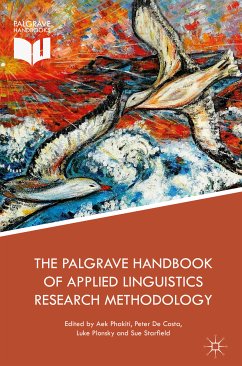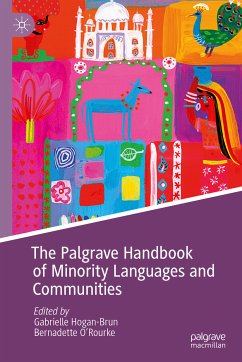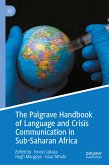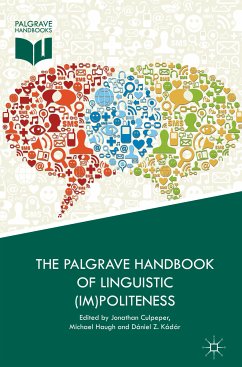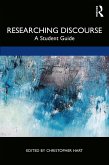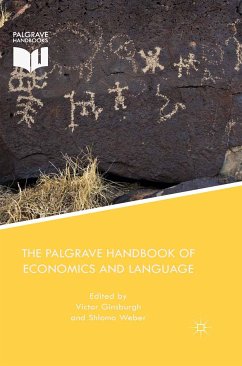Dieser Download kann aus rechtlichen Gründen nur mit Rechnungsadresse in A, B, BG, CY, CZ, D, DK, EW, E, FIN, F, GR, HR, H, IRL, I, LT, L, LR, M, NL, PL, P, R, S, SLO, SK ausgeliefert werden.
"The most prominent feature of this handbook is in intersecting research synthetic thinking and layering approach orientation towards all the research issues in the sections. Such coherent direction represents a retrospective-and prospective approach, whose proponents attend to both past applied linguistics research and future endeavours in the transdisciplinary field of applied linguistics to provide sound empirical evidence for the complicated questions. ... Another notable feature of the handbook is related to its accessibility to the research consumers with the intermediate level of background on research methodology." (Mohammad Amini Farsani, Applied Linguistics, 24 June, 2019)

